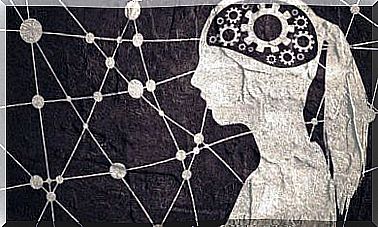Listening Without Empathy: Emotional Disconnection

Listening without empathy is looking without seeing. That is to say yes with the face while the mind is absent, disconnected and emotionally distant from whoever is in front of it. Few competencies are as essential to building strong and meaningful relationships as communication and empathic listening, where knowing how to connect with the eyes, feelings and will.
Just a few months ago, Yale University psychologist Paul Bloom, a specialist in cognitive sciences, went around the world following controversial comments about empathy. According to him, this dimension has little positive. However, to understand what he meant by these words, it is necessary to delve into his message.
According to Professor Bloom on occasions, behind this dimension there is an act of sibylline falsehood. One can, for example, empathize with what the couple is explaining, but give it exactly the same. That is to say, we are all, in some way, capable of putting on someone else’s shoes, but then acting with total indifference.
Therefore, we could correctly conclude that empathy is of little use if there is not a proactive attitude, an authentic awareness and an active attitude towards who we have in front of us. Moreover, as Professor Bloom points out, sometimes there are people who carry out certain behaviors based on empathy, but they do not do them to help others, but to feel good about themselves.
All of this perhaps encourages us to refine our idea of this feature a little more. It is not enough just to be there, to feel and show that we understand the reality of the other. It is necessary to actively manifest that feeling, that connection.

Listen without empathy, a sadly common behavior
Listening without empathy is more common than we might think at first. Moreover, sometimes we tend to ritualize our daily interactions so much that we do not perceive that lack of emotional connection, the one that almost without knowing, we are directing who we have in front of us.
A very characteristic example is those moms and dads who respond almost automatically to their children when they explain something to them. Those phrases are as hackneyed as ” yes that drawing is very nice” or “really? How interesting ”, while they are being picked up from school or while they are busy with other things and the little ones try to explain to them what they have done during the day.
These dynamics do not mean that we love our children less, not at all. It means that sometimes we don’t have time to be present and we just listen without empathy because life is busy, because our days make our minds be everywhere (and nowhere at the same time).
Non-empathic responses that make emotional connection difficult
We have all had that same feeling. The one where we are talking to someone who remains absent, who says yes with his head while his thoughts are miles away. Now, it is common for there to be other types of situations where they give us a type of answers, comments or reflections that, far from helping, act as walls. Like barbed wire in emotional connection.
They are as follows:
- Advisory answer: what you should do …
- Emphatic personal response: You are an exaggeration, but that is nothing!
- Corrective: what you say is not like that
- Question: and now why do you say / think / do that?
- Excuse answer: I know that worries you, but I can’t help you right now because …
As we can see, with this type of response we realize that sometimes it is better that they had not told us anything. Thus, listening without empathy is often compounded by another problem: emitting responses that break empathic understanding.

Cultivate authentic empathy with an active attitude
We can all (and surely will be) empathetic people. Furthermore, studies such as the one carried out by Dr. Anthony David of the Institute of Psychiatry, DeCrespigny Park, in London, shows us that it is already possible to measure empathy and obtain our own empathic coefficient.
If we did, we would no doubt realize that we all possess this dimension, but something we often fail at is one of its key dimensions: social ability. That is, we are empathetic, but we do not use this competence effectively. This means that sometimes we limit ourselves to listening without empathy, that we understand the other but respond in an inappropriate way or that the other person does not feel that we understand them authentically. Therefore, it is necessary that we keep in mind the following keys.
How to use empathy effectively
- Empathy requires time and knowing how to be present, without haste and without excuses.
- The empathic attitude uses the look in the first place. We need to look at the other without judging, with closeness and affection.
- Second, we must know how to respond. Criticism, judgments or the “I in your place would have done” do not help in these cases.
- At the same time, empathy needs above all to be proactive. Because whoever pretends to understand but does nothing, cheats and fails. Because making believe that we are valuable, but then neglecting ourselves, leaves a mark and hurts.
To conclude, let’s not assume that we are all experts in this field. We always have something to learn, to polish, to improve in our daily empathy practice. So let’s start with ourselves to give the best to others and thus take care of our relationships for what they are: authentic treasures.









